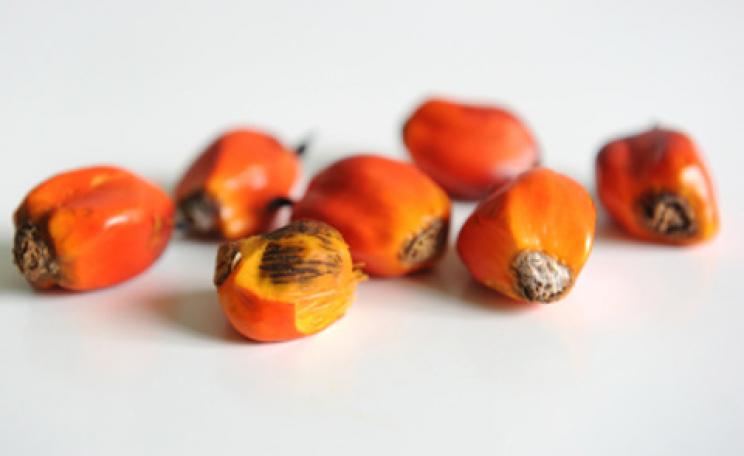The amount of land acquired for biofuels globally is far higher than previously thought, according to one of the most comprehensive assessments yet by the International Land Coalition (ILC).
Biofuels are now the major driver for large-scale purchases of farmland or ‘land grabbing’ in the global south, with almost 53 per cent of the 71 million hectares cross-referenced in the report, being used for biofuels.
In Africa, the impact of biofuels was even stronger with 66 per cent of land purchases used for biofuels. Food was next highest at 15 per cent.
This is far higher than a World Bank’s analysis last year that just 21 per cent of global land grab deals conducted between 2008-9 were being used for biofuels.
Europe's biofuel demand
Campaigners say ‘land grabbing’ is being driven by EU targets to source 10 per cent of all transport fuels for buses and cars from biofuels rather than conventional fossil fuels by 2020.
‘These findings suggest that the scale of land-grabbing for biofuel production is far worse than previously imagined,’ Robbie Blake of Friends of the Earth Europe. ‘Europe’s appetite for land is already unsustainable, reaching well beyond its borders, with devastating social and environmental impacts.’
The report, ‘Land Rights and the Rush for Land’, involved the collaboration of over 40 different organisations in the research process – the biggest study to date. It says rural livelihoods have been put in jeopardy by the land grabbing deals, with the promise of jobs not, as yet, materialising.
‘Weak governance, corruption and a lack of transparency in decision-making, which are key features of the typical environment in which large-scale land acquisitions take place, mean that the poor gain few benefits from these deals but pay high costs,' says Dr Madiodio Niasse, Secretariat Director of the International Land Coalition.
Rise in 'flex' crops
Report author Michael Taylor, from the International Land Coalition, says they were surprised by the dominance of biofuels in land grabbing deals.
‘What one would expect is that food would be a bigger driver, because biofuel is largely driven by two factors which can change quite quickly: one is subsidy [...] the other is other is technological change.’
Taylor said that there had also been a rise in ‘flex’ crops in land grabbing deals, which could be used for biofuels or food, such as soya, palm oil and sugar cane.
‘I think some savvy investors are moving towards planting crops that, as the market changes, they can use for whatever they want. At the moment, it looks like energy is maybe more profitable than food, and so it’s biofuel food stock. But, if something changes in the market, they can change it to food.’
After biofuels and food, the other main drivers of land-grabbing deals were mineral exploitation, tourism and carbon sequestration projects. It is not just foreign investors who buy land either, in some cases national elites were behind the deals, buying up land before offering their services to overseas companies.
Land deals going wrong
The report highlighted land grab deals that went wrong and left local populations with degraded land. For example, in Mozambique and Tanzania land was abandoned after the financial crisis and changing oil prices, which made biofuels less attractive to speculators.
As well as changing financial circumstances, the report says many investments were failing because of unrealistic targets and an underestimation of the technical, logistical, administrative and community engagement challenges involved in getting these projects going.'
Governments were also guilty of abusing the land rights of local communities. In Ethiopia, a large area of land owned by the Indian company Karuturi has been put out of bounds to its original users, despite the company only using a small area of it, denying them access to a water supply and thereby rendering their grazing land useless.
And in Indonesia, the government has given large concessions of forest to companies to produce oil, which was subsequently harvested for its timber without any planting taking place, leaving the area unusable by its local communities.
| READ MORE... | |
 |
NEWS Biofuels: jatropha still linked to 'land grabbing and displacement of farmers' European investment companies continue to tout the biofuel as a 'wonder-crop' despite serious environmental and social impacts - Friends of the Earth report |
 |
NEWS ANALYSIS Palm oil giants target Africa in 'land grab' following Indonesia deforestation ban Indonesia's move to bring in a two-year moratorium on new palm oil plantations to protect its remaining rainforests has seen agribusiness giants like Sime Darby switch expansion plans to Cameroon, Ghana and Liberia |
 |
NEWS World bank hints Africa is ‘quick win’ for land grabbing investors Report on land-grabbing reveals large-scale farmland deals amounted to 45 million hectares in 2009 alone with 6 million hectares expected to be added every year in less industrialised countries |
 |
NEWS ANALYSIS Biomass is the next biofuel 'land grab' on tropical forests, warn campaigners Just as biofuels have gobbled up farmland that should have been growing food so the push on biomass by Monsanto, Cargill and others will see an 'unprecedented' grab on land, plants and biodiverse-rich forests |
 |
NEWS ANALYSIS Foreign land grabbing leaves Filipino farmers with nothing Advocates of foreign ownership of agricultural land say it brings wealth, infrastructure and new farming techniques; opponents say that displaced and deskilled smallholders are often the result |








